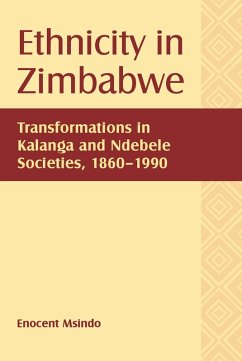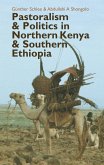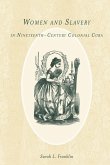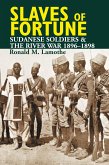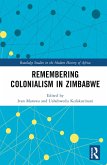A comparative study of identity shifts in two large ethnic groups in Matabeleland, Zimbabwe.
Ethnicity in Zimbabwe: Transformations in Kalanga and Ndebele Societies, 1860-1990 is a comparative study of identity shifts in two large ethnic groups in Matabeleland, Zimbabwe. The study begins in 1860, a year after the establishment of the Inyati mission station in the Ndebele Kingdom, and ends in the postcolonial period. Author Enocent Msindo asserts that-despite what many social historians have argued-the creation of ethnic identity in Matabeleland was not solely the result of colonial rule and the new colonial African elites, but that African ethnic consciousness existed prior to this time, formed and shaped by ordinary members of these ethnic groups. During this period, the interaction of the Kalanga and Ndebele fed the development of complex ethnic, regional, cultural, and subnationalist identities. By examining the complexities of identities in this region, Msindo uncovers hidden, alternative, and unofficial histories; contested claims to land and civic authority; the politics of language; the struggles of communities defined as underdogs; and the different ways by which the dominant Ndebele have dealt with their regional others, the Kalanga. The book ultimately demonstrates the ways in which debates around ethnicity and other identities in Zimbabwe-and in Matabeleland in particular-relate to wider issues in both rural and urban Zimbabwe pastand present.
Enocent Msindo is Senior Lecturer in History at Rhodes University, Grahamstown, South Africa.
Ethnicity in Zimbabwe: Transformations in Kalanga and Ndebele Societies, 1860-1990 is a comparative study of identity shifts in two large ethnic groups in Matabeleland, Zimbabwe. The study begins in 1860, a year after the establishment of the Inyati mission station in the Ndebele Kingdom, and ends in the postcolonial period. Author Enocent Msindo asserts that-despite what many social historians have argued-the creation of ethnic identity in Matabeleland was not solely the result of colonial rule and the new colonial African elites, but that African ethnic consciousness existed prior to this time, formed and shaped by ordinary members of these ethnic groups. During this period, the interaction of the Kalanga and Ndebele fed the development of complex ethnic, regional, cultural, and subnationalist identities. By examining the complexities of identities in this region, Msindo uncovers hidden, alternative, and unofficial histories; contested claims to land and civic authority; the politics of language; the struggles of communities defined as underdogs; and the different ways by which the dominant Ndebele have dealt with their regional others, the Kalanga. The book ultimately demonstrates the ways in which debates around ethnicity and other identities in Zimbabwe-and in Matabeleland in particular-relate to wider issues in both rural and urban Zimbabwe pastand present.
Enocent Msindo is Senior Lecturer in History at Rhodes University, Grahamstown, South Africa.
Dieser Download kann aus rechtlichen Gründen nur mit Rechnungsadresse in A, D ausgeliefert werden.

